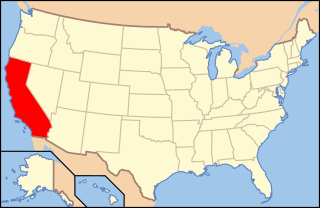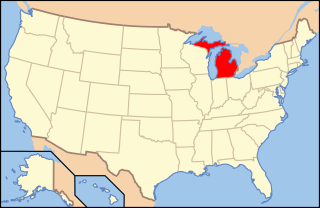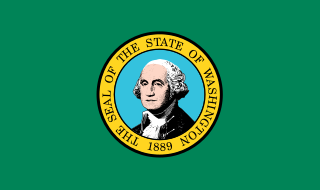Gun laws and policies, collectively referred to as firearms regulation or gun control, regulate the manufacture, sale, transfer, possession, modification, and use of small arms by civilians. Laws of some countries may afford civilians a right to keep and bear arms, and have more liberal gun laws than neighboring jurisdictions. Countries that regulate access to firearms will typically restrict access to certain categories of firearms and then restrict the categories of persons who may be granted a license for access to such firearms. There may be separate licenses for hunting, sport shooting, self-defense, collecting, and concealed carry, with different sets of requirements, permissions, and responsibilities.
Firearms in Canada are federally regulated through the Firearms Act and related provisions of the Criminal Code. Regulation is largely about licensing and registration of firearms, including air guns with a muzzle velocity of more than 500 ft/s or 150 m/s and muzzle energy greater than 4.2 ft⋅lb or 5.7 J.
In the United Kingdom, access by the general public to firearms is subject to some of the strictest control measures in the world. Subject to licensing, members of the public may own rifles and shotguns. However, most handguns have been banned in Great Britain since the Dunblane school massacre in 1996. Handguns are permitted in Northern Ireland, the Channel Islands and the Isle of Man which have their own legislation. Scotland imposes an additional licensing regime on airguns, which is not mirrored in England and Wales.
Firearms regulation in Finland incorporates the political and regulatory aspects of firearms usage in the country. Both hunting and shooting sports are common hobbies. There are approximately 300,000 people with hunting permits, and 34,000 people belong to sport shooting clubs. Over 1,500 people are licensed weapons collectors. Additionally, many reservists practice their skills using their own semi-automatic rifles and pistols after the military service.
A Federal Firearms License (FFL) is a license in the United States that enables an individual or a company to engage in a business pertaining to the manufacture or importation of firearms and ammunition, or the interstate and intrastate sale of firearms. Holding an FFL to engage in certain such activities has been a legal requirement within the United States since the enactment of the Gun Control Act of 1968. The FFL is issued by the Bureau of Alcohol, Tobacco, Firearms, and Explosives
The possession and acquisition licence is the primary firearms licence under Canadian firearms laws. The PAL is the only licence issued to new adult firearms licence applicants in Canada; it is both required and the only permissible document for a person to acquire or permanently import a firearm. Applicants for a PAL must be 18 years of age or older.

Concealed carry, or carrying a concealed weapon (CCW), is the practice of carrying a weapon, either in proximity to or on one's person or in public places in a manner that hides or conceals the weapon's presence from surrounding observers. In the United States, the opposite of concealed carry is called open carry.

A firearms license is a license or permit issued by a government authority of a jurisdiction, that allows the licensee to buy, own, possess, or carry a firearm, often subject to a number of conditions or restrictions, especially with regard to storage requirements or the completion of a firearms safety course, as well as background checks, etc. Firearms licenses are not required in all jurisdictions. Additionally, some countries or states may require by law a "permit-to-purchase" in order to buy handguns or firearms. A licence may also be required to buy ammunition.
The gun laws of New Zealand are contained in the Arms Act 1983 statute, which includes multiple amendments including those that were passed subsequent to the 1990 Aramoana massacre and the 2019 Christchurch mosque shootings.
Military-style semi-automatic firearms in New Zealand are those semi-automatic firearms known in the United States as "assault weapons". The phrase is often abbreviated as military-style semi-automatic (MSSA). A New Zealand firearms licence-holder requires an E Category endorsement on their licence before they can possess this type of firearm, and a police-issued permit to procure each firearm is required. Arriving at a clear definition and common understanding of which semi-automatic firearms have a military-style configuration has dominated debate about gun-control legislation in New Zealand since 1992.

In New Zealand, the Arms Act 1983 is the primary statute controlling the possession and use of firearms and air guns.

Gun laws in California regulate the sale, possession, and use of firearms and ammunition in the state of California in the United States.
This is a list of laws concerning air guns by country.

Gun laws in New York regulate the sale, possession, and use of firearms and ammunition in the U.S. state of New York, outside of New York City which has separate licensing regulations. These regulations are very strict in comparison to the rest of the United States.

Gun laws in Utah regulate the sale, possession, and use of firearms and ammunition in the state of Utah in the United States.

Gun laws in Massachusetts regulate the sale, possession, and use of firearms and ammunition in the Commonwealth of Massachusetts in the United States. These laws are among the most restrictive in the entire country.

Gun laws in Michigan regulate the sale, possession, and use of firearms and ammunition in the U.S. state of Michigan.

Gun laws in New Jersey regulate the sale, possession, and use of firearms and ammunition in the U.S. state of New Jersey. New Jersey's firearms laws are among the most restrictive in the country.

Gun laws in Washington regulate the sale, possession, and use of firearms and ammunition in the state of Washington in the United States.
Irish law allows firearm possession on may-issue basis. With approximately seven civilian firearms per 100 people, Ireland is the 107th most armed country in the world.










